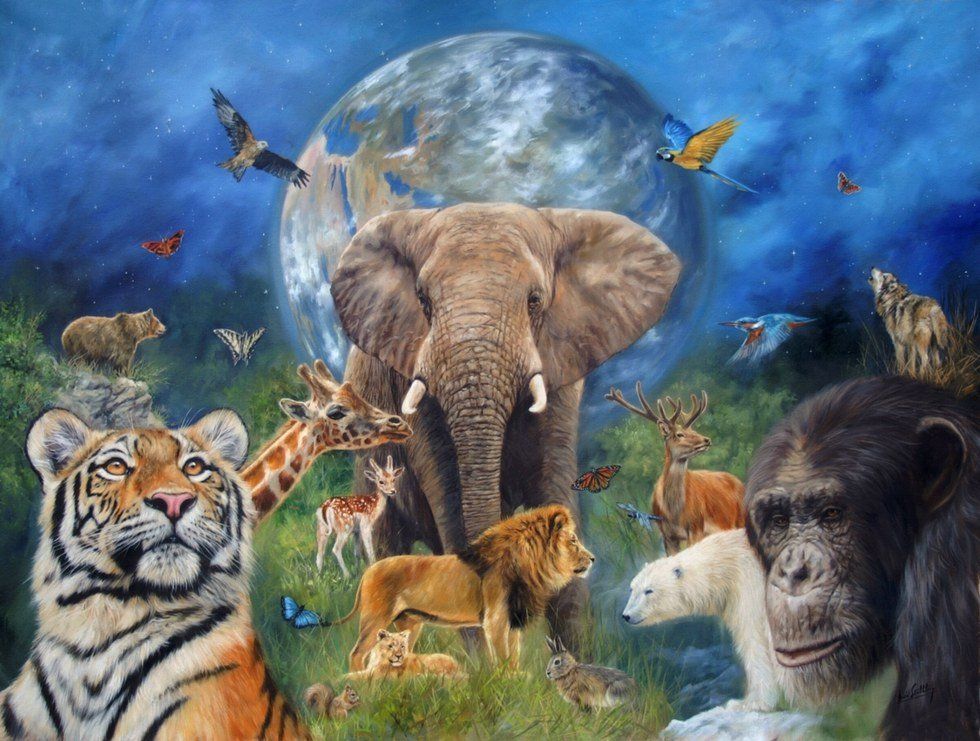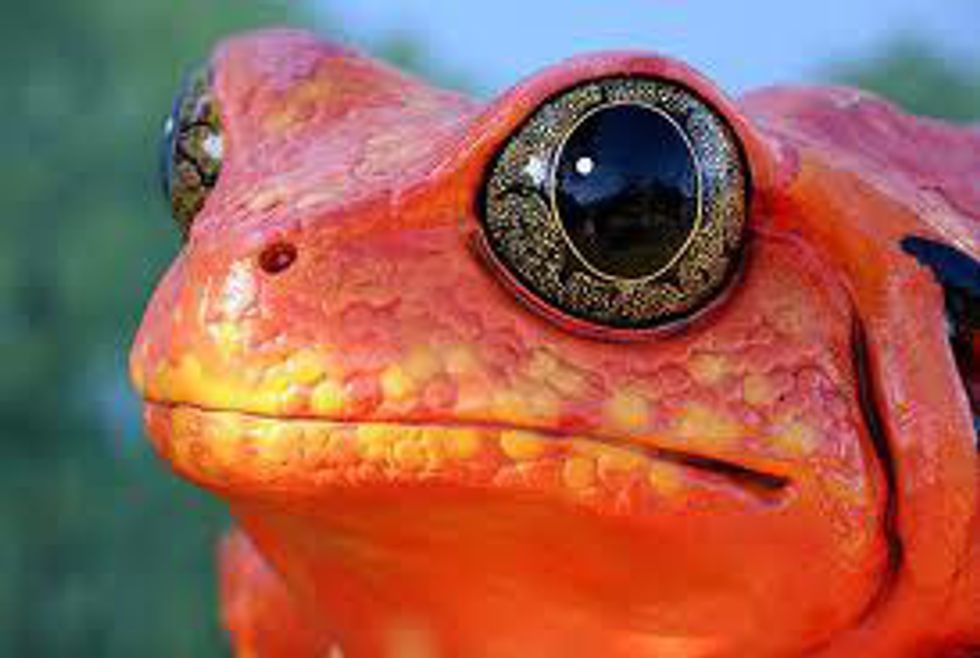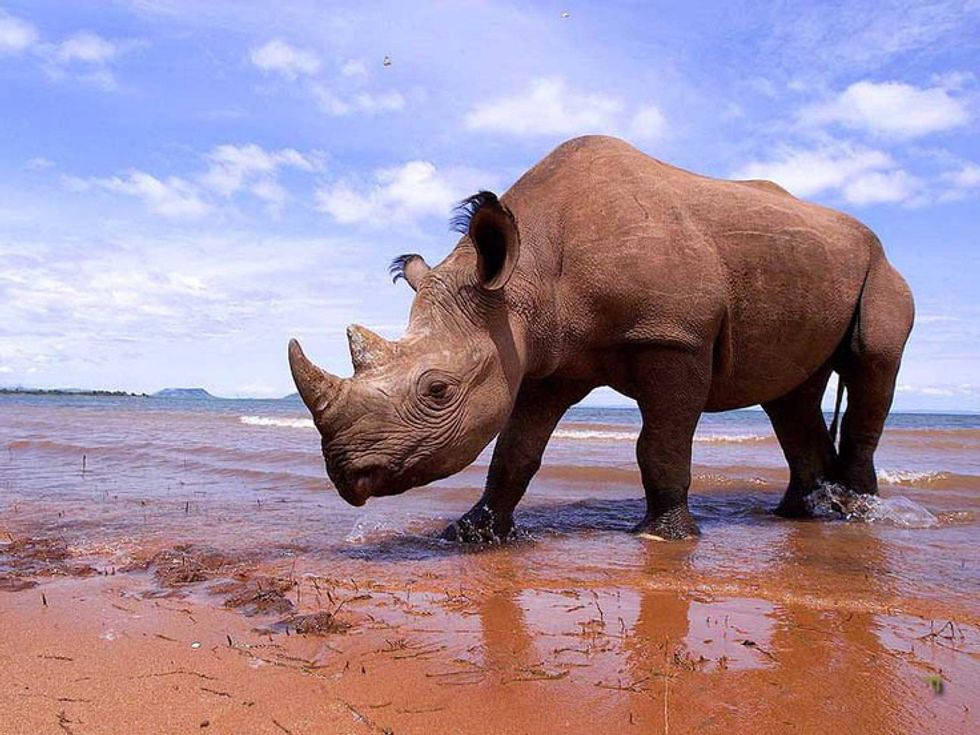In the past week, bees have been added to the endangered species list for the first time in U.S. history. The Great Barrier Reef is dying, and an preliminary obituary was already written by Rowan Jacobsen for the 25.5 million-year-old organism that was visible from space, which is in serious danger if something is not done now.
Plants and animals all over the world are in trouble, and have been fighting for their lives for years. Some countries like South Africa has put all of their organisms on the endangered species list, varying from threatened for extinction to extinct in the wild.
These organisms are dying for a number of reasons, from poaching for their skin or scales, to habitat loss and global warming. Most, if not all, of these population numbers have been dramatically lowered due to human impacts on the ecosystems we share (or the ecosystems we used to share).
In the past 10 years, many species have been added to the endangered species list, while others have been pronounced extinct altogether. Endangered organisms are just one step closer to extinction, and our species should do whatever we can to keep them away from extinction.
These species have been declared “extinct” in the past 10 years:
1. Golden Toad.
These toads could be found in the rain forests of Costa Rica, and used to be a common sight among the trees. After 1989, the species was no longer found in the wild, even though there were signs of their existence. The population numbers dropped due to the disease chytridiomycosis, a disease affecting amphibians that are caused by a fungus, as well as climate changes that altered their environment. The species was declared extinct in 2007.
2. Baiji Dolphin.
This dolphin could only be found in the Yangtze River that runs through China. These animals were killed and their skin was used in the fashion industry to produce leather garments such as gloves and handbags. Fishing in the river also caught many of these animals in nets, and took away their food source. Pollution in the river also affected their population numbers, and one hasn’t been seen since 2002. Baiji dolphins were declared extinct in 2010.
3. Western Black Rhino.
The Western Black Rhinoceros, mainly found in Cameroon, have gone extinct due to poaching for their ivory horns. The ivory is sold worldwide, and the U.S. is one of many contributors to the ivory industry that is taking the horns of both rhinos and elephants throughout Africa. Some black rhinos still exist, but this specific group of rhinos became extinct in 2011.
4. Caribbean Monk Seal.
In 2008, the Caribbean monk seal disappeared from its blue waters. The first recording of these seals were in 1493 by Christopher Columbus when he was voyaging around the Americas. In the 1600s, Spaniards came to the Caribbean and killed a large percentage of the species. The species was not seen for around 50 years before it was declared extinct.
These four animals share one important fact in common: they are all extinct due to human impacts on the environment. We are losing thousands of species a year because of damage that has been done to the environment and mistakes our species has made in the past that lead these animals to disappear from the planet they once called home.
Many animal population numbers in the U.S. specifically are declining at alarming rates and have been added to the endangered species list. Almost all of these animals are dropping in numbers due to habitat loss, and some of them are found in our backyards. Some of these animals include the honeybee, Coho and Chinook salmon, Sierra Nevada red fox, grey wolves, and the great grey owl.According to the World Wildlife Foundation, WWF, between 10,000 and 100,000 are going extinct each year based on the upper estimate of the amount of species on Earth. Since we don’t know exactly how many species there currently are, the estimate on how many are lost is a significant window. Studies have also shown that these extinction rates are much higher (1,000 to 10,000 times higher) than the natural extinction rate.
This is the start of the sixth extinction, and the only difference between this mass extinction and the five past extinctions is that humans are almost entirely responsible. The extinct species mentioned above will never be able to come back, but there are so many endangered animals that are still here, at least for now.
Taking action and learning about what you can do at home to help these species is very important. Buying certified organic food can ensure that pesticides won’t be used, which can runoff into rivers and contaminate the water. You can also use renewable energy, try to reduce your carbon footprint, buy local meat and wood, and volunteer for different conservation projects in your area.
The WWF website includes some actions you can take part in to help save species biodiversity, as well. Dave Hooper, a Western Washington University professor for biology has written a paper, "10 things you can do to help biodiversity" that can also be used as a helpful resource.
Together, we can make an impact trying to slow down the rate of extinction and try to keep more endangered animals from becoming extinct.

























